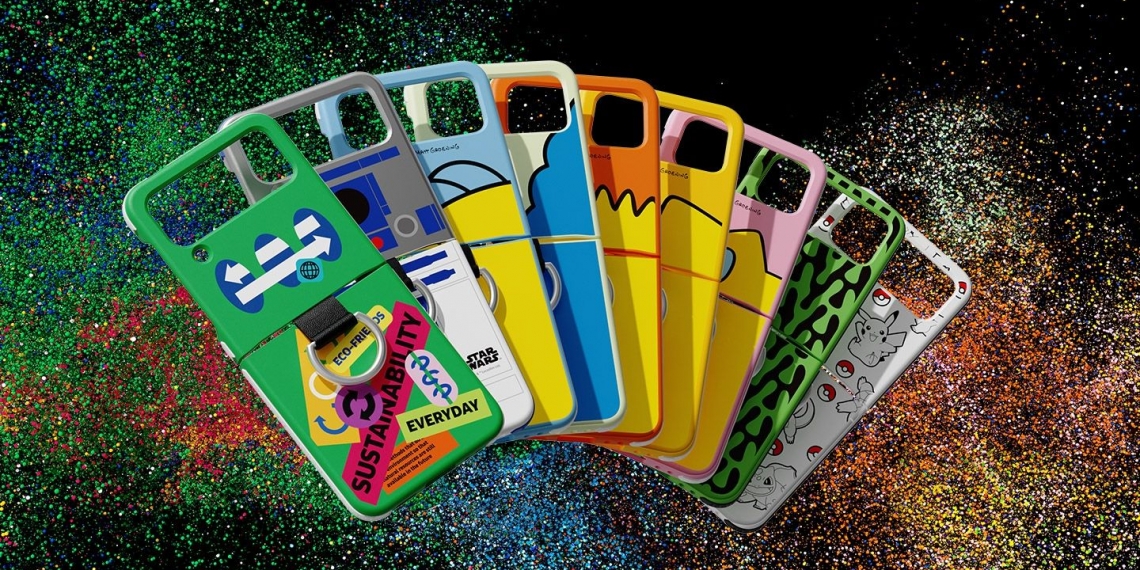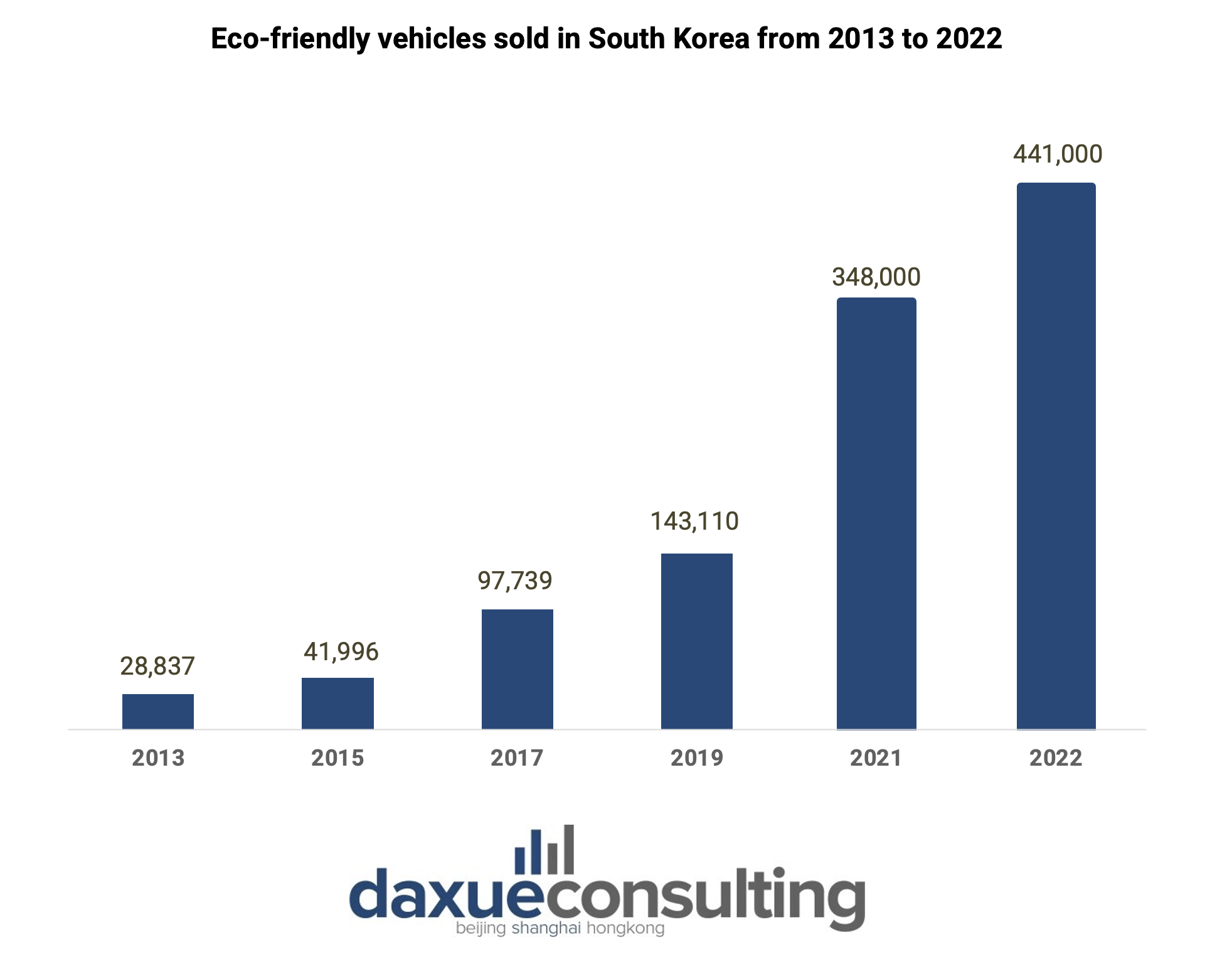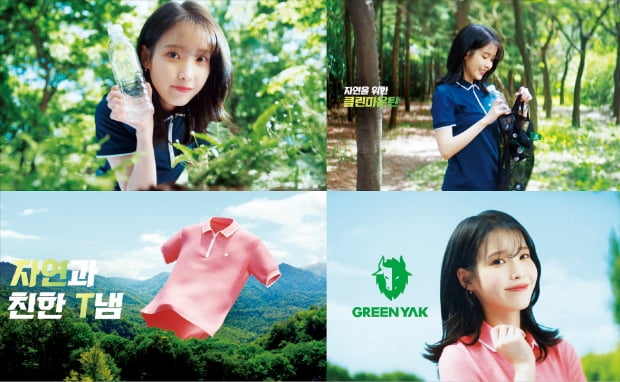Eco-friendly consumption in South Korea goes beyond addressing global warming or preserving the environment; it involves consumers expressing their values through their choices. This shift has led to a substantial increase in eco-friendly consumption, soaring from USD 1.15 billion in 2001 to 22.98 billion in 2020.
Read our Korea’s MZ Generation report

Koreans are increasingly buying products with eco-friendly elements throughout the entire product journey, from raw material acquisition to production, distribution, use, and disposal. A significant number are willing to buy eco-friendly products, even at a higher price. In a survey conducted by the Korea Consumer Agency, 86.4% of 1,000 respondents expressed their willingness to purchase eco-friendly items even if they paid a little more, with many willing to pay an additional 5 to 10%).
“Meaning out”: The rise of value-based consumption in South Korea
“Meaning out (미닝아웃)”, combining “meaning” and “coming out,” is a newly coined term referring to expressing one’s value and belief through consumption. Many South Korean consumers, particularly the MZ Generation, are increasingly consuming products based on their personal values, beliefs, and ethical considerations. For example, they are buying more eco-friendly products. According to a survey by South Korean growth management app Grow in 2021, approximately 79% of the 928 respondents identify themselves as value consumers. They place significant emphasis on environmental aspects within the ESG (Environmental, Social and Governance) framework.
Consumers are also showing favorability towards companies that are involved in ESG practices. In response to the growing interest, companies, including chaebols like Samsung and LG, are continuously offering eco-friendly products that allow consumers to express themselves and can strengthen the connection between brands their customers.

Driving green: the surge of eco-friendly automobiles in South Korea
Eco-friendly consumption is actively practiced in South Korea’s automobile industry. In the first half of 2023, 30% of all cars sold in South Korea were eco-friendly vehicles, with 264,249 eco-friendly vehicles sold. Compared to the first half of 2022, the number of eco-friendly cars sold in the first half of 2023 increased by 26.1%. South Korean consumers’ awareness of sustainable consumption played an important role in the increased sales of eco-friendly vehicles. A report published by the domestic automobile research company Consumer Insight underscores the pivotal role played by environmental considerations in the decision-making process of consumers opting for electric vehicles. The report highlights the eco-friendly aspect emerging as a key motivator driving the increased adoption of electric vehicles in South Korea.
Hybrid electric vehicles are the most popular eco-friendly vehicles due to their affordability and accessible charging advantage over electric vehicles. However, there are opportunities for electric vehicles to attract more consumers as the South Korean government plans to install 1.23 million chargers by 2030.

Weaving sustainability: the fashion industry embraces eco-friendly fabrics
The eco-friendly sector within South Korea’s fashion industry, particularly in the fabric market, is gradually expanding. The domestic eco-friendly fabric market was about USD 770 million in 2021, only about 2% of the total domestic fabric market. However, the Korean government and related market leaders are actively working to expand the eco-friendly fabric market. The Korean government has pledged support for the market by focusing on technology development in eco-friendly areas and expanding sectors such as public procurement within the related market.
Furthermore, as sustainable fabric quality improves and consumer interest in ESG grows, domestic recycling fabric companies are increasing in size. For instance revenue of South Korean company Hyosung TNC’s eco-friendly fiber brand “Regen (리젠)”’ almost tripled, increasing from USD 8.14 million in 2018 to USD 24.21 million in 2020. With major corporations such as Hyosung TNC and Samsung C&T Fashion, along with support from the South Korean government, the eco-friendly fashion market in South Korea is poised for further growth, driven by advancing technologies and increasing consumer demand for sustainable consumption.
Sustainable solutions: Eco-friendly initiatives in capitalizing eco-friendly consumption in Korea
Following the increasing number of Korean green consumers, more domestic companies have entered the eco-friendly sectors and devised corresponding strategies. South Korean Food & Beverage companies, for example, are offering sales on eco-friendly products and refraining from using non-recyclable packaging. Additionally, sales of Lotte Chilsung, a domestic Food & Beverage company, are increasing with its label-free water, contributing to waste reduction and enhancing recycling convenience.
Organizing eco-friendly campaigns is also one of the strategies that companies use to gain positive image from consumers. South Korean outdoor brand “BlackYak (블랙야크)” organized their own eco-friendly campaign GreenYak, encouraging consumers to participate in environmental activities in the love of nature. Participants who completed GreenYak challenges and posted about their accomplishments on Instagram for verification were rewarded by the company. With more than 5,000 posts on Instagram, the campaign gain success not only in promoting BlackYak’s brand name, but also in enhancing its eco-friendly brand image.
Domestic companies also use exhibitions as a way to express their concern for the environment. South Korean tobacco company KT&G organized exhibition that showed upcycling artworks to raise awareness about the seriousness of pollution and emphasize the importance of saving the ecosystem. Domestic fashion brands have also participated in Korea’s biggest textile fair “Preview in Seoul” to introduce their eco-friendly fibers and outfits.

Mounting interest in eco-friendly consumption in South Korea
- Followed by increasing concern for global warming and interest in the environment, eco-friendly consumption in the country has increased from USD 1.15 billion in 2001 to 22.98 billion in 2020.
- Many South Korean consumers, especially the MZ generations are practicing meaning out (미닝아웃), expressing their values through consumption.
- The South Korean government is actively supporting eco-friendly initiatives, promising technological backing and witnessing increased consumer demand. Major companies, including Samsung and LG, are responding by offering eco-friendly products, aligning with consumer values.
- The automobile industry in South Korea is a key player in eco-friendly consumption, with 30% of cars sold in the first half of 2023 being eco-friendly vehicles. The awareness of sustainable consumption among South Korean consumers has contributed to increase in eco-friendly car sales.
- The eco-friendly sector in South Korea’s fashion industry, particularly in the fabric market, is expanding. Although the domestic eco-friendly fabric market constitutes only 2% of the total domestic fabric market, the government’s commitment and advancements in technology are driving growth.
- In response to the surge in green consumers, South Korean companies are going green. Food & Beverage firms promote eco-friendly products and cut non-recyclable packaging. BlackYak enhances brand image with the successful “GreenYak” campaign. Companies like KT&G exhibit environmental commitment through exhibitions and fairs.





